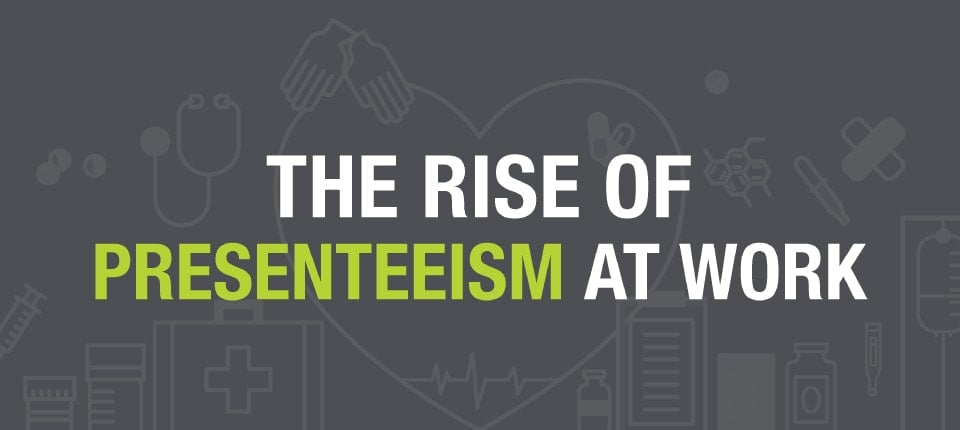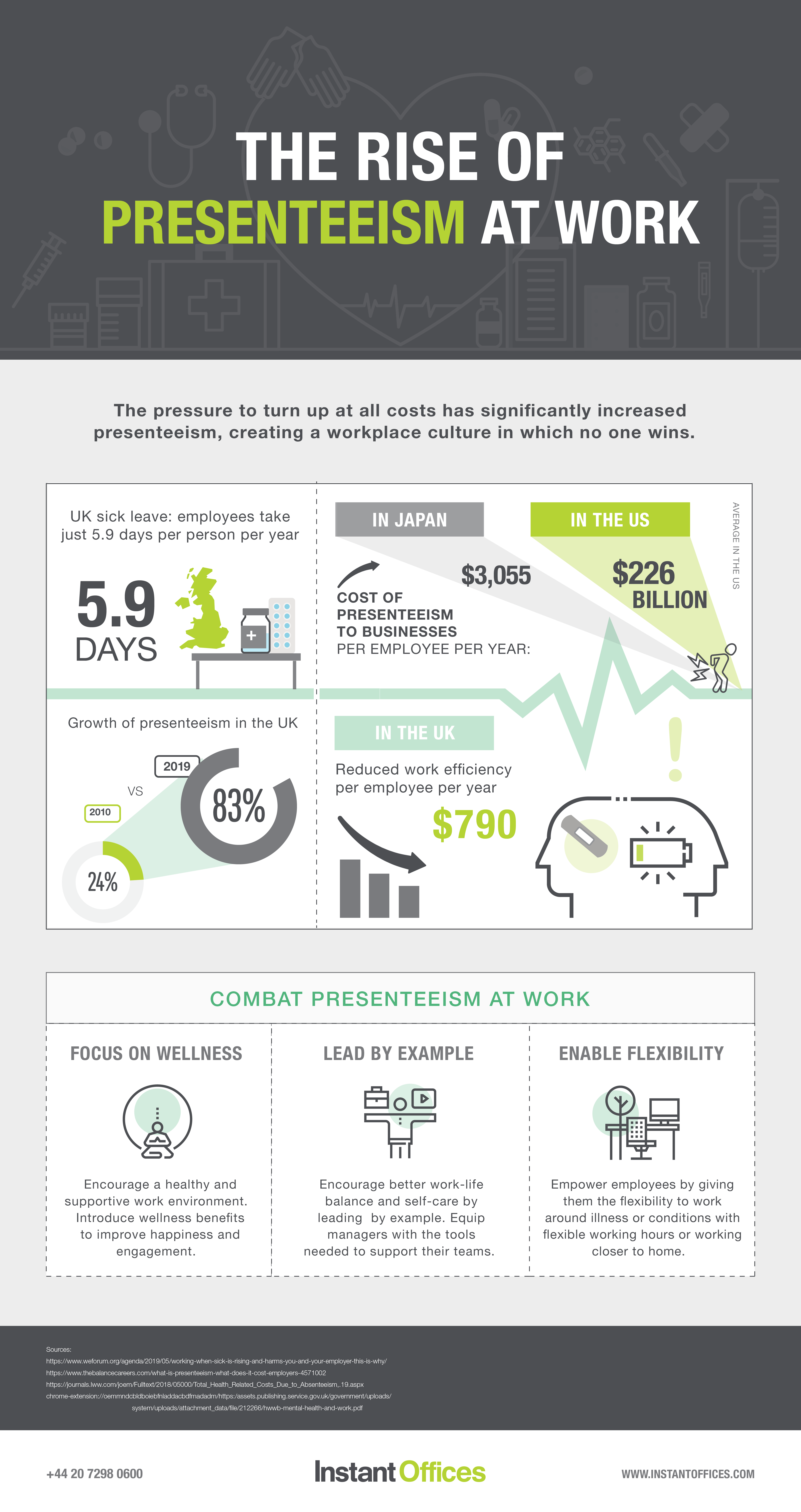Today’s workplace culture has many employees feeling the pressure to turn up to the office at all costs, even when ill; however, the global pandemic COVID-19 has shown it is more critical than ever for businesses to tackle the widespread challenge of “presenteeism” at work.
Presenteeism creates a negative cycle where everyone loses. It is detrimental to employee happiness, organisational productivity and even the economy. And right now it poses an especially dangerous problem. Employees who show up to work when ill are likely to spread around colds, ‘flu and bugs, which means that it can also exacerbate the current spread of Coronavirus, unintentionally infecting many vulnerable people.
Let’s look at the stats on presenteeism and explore what makes it such a challenge, not just right now, but in the long run as well.
Read: Are You Addicted to Work or Just Hard Working?
The Cost of Presenteeism
Presenteeism is not a new phenomenon, but recent events have brought it into sharper focus. One misconception that perpetuates presenteeism from an organisational perspective is that employees who show up are at least contributing, as opposed to those who are absent. This has led to more organisations emphasising the reduction of absenteeism while failing to understand presenteeism and how to manage it, effectively replacing one problem with another.
The idea that being at work against all the odds is a sign of loyalty and commitment couldn’t be further from the truth. Studies suggest those who show up for work ill are significantly less productive than when they are well, and that the costs of presenteeism far outweigh those of illness-related absenteeism or disability.
- Presenteeism in the UK has more than tripled since 2010, with 83% of employees saying they’d seen it happen in 2019, compared to just 24% in 2010.
- The number of UK employees taking sick leave fell to an all-time low – just 5.9 days per person per year.
- In the US, presenteeism is costing businesses around $226 billion per year.
- In Japan, the cost is estimated at $3,055(¥336,612) per employee per year.
- In the UK, reduced work efficiency caused by mental ill-health costs $790(£677) per employee per year.
What Drives Presenteeism?
Manager Behaviour
As role models within a company, managers can significantly influence work culture. Due to a sense of responsibility to their teams, managers can also be significant presenteeism culprits and unknowingly put pressure on employees to act the same way. In organisations with high manager presenteeism, the ratio of employee presenteeism is often high too.
Concern for Colleagues
Studies show presenteeism is prevalent in jobs where attendance influences other people. Employees are likely to go to work ill to avoid a colleague dealing with an additional workload or pressure, especially in situations where there is no replacement.
Company Culture
Pressure to show commitment and loyalty to a job can lead to a rise in presenteeism. Studies have found perfect attendance to be seen as a sign of commitment to a job, while taking time off sick is seen as a sign of underperformance, particularly in the private sector. This kind of work ethic can be unknowingly perpetuated in an organisation by senior managers and long-time employees.
Job Stress
The correlation between presenteeism and stress at work is high, and employees who feel unsure about their job security are more likely to show up when ill. When it comes to stress, specific behaviours from managers were linked to increased work unhappiness and stress. Some of these include: failure by managers to properly manage group dynamics; making decisions without seeking employee input; and disinterest in employee work and projects.
Three Ways to Improve Company Culture and Combat Presenteeism
- Put Employee Wellness on the Agenda: Encourage a healthy and supportive work environment by ensuring senior managers are equipped to deal with teams in a positive and encouraging way. This includes being able to support and manage employees with chronic health problems or mental health issues. Additionally, perks tailored to each team can help encourage a healthier and happier workplace culture, and can include anything from gym memberships and monthly massages to healthcare screenings and flexible work hours.
- Enable Seniors to Lead by Example: By managing their own absence and presence and encouraging a healthy work-life balance, line managers and senior managers can act as better role models for the organisation and inspire their teams to do the same. It is crucial for managers to be equipped with the tools to identify and support employees with specific needs.
- Encourage Flexibility: Employees who can adjust their working hours and environment according to a health condition are less likely to fall into a cycle of presenteeism. Managers should be responsible for creating awareness and working with team members to identify the best way of working in the event of a health issue. By offering flexible options such as varied working hours or working remotely, employees can take some of the control back and still maintain their work.
The majority of companies are following healthcare recommendations and instructing their employees continue to work from home until the Coronavirus outbreak is contained. Considering the effects of presenteeism and the current risk posed by sick employees arriving at work, isn’t it time you started doing the same?
Find a flexible workspace to benefit your workforce.
Looking for Office Space?
We Operate in Some of the World’s Top Cities:
London, New York, San Francisco, Paris, Singapore, Hong Kong,
Search more locations

